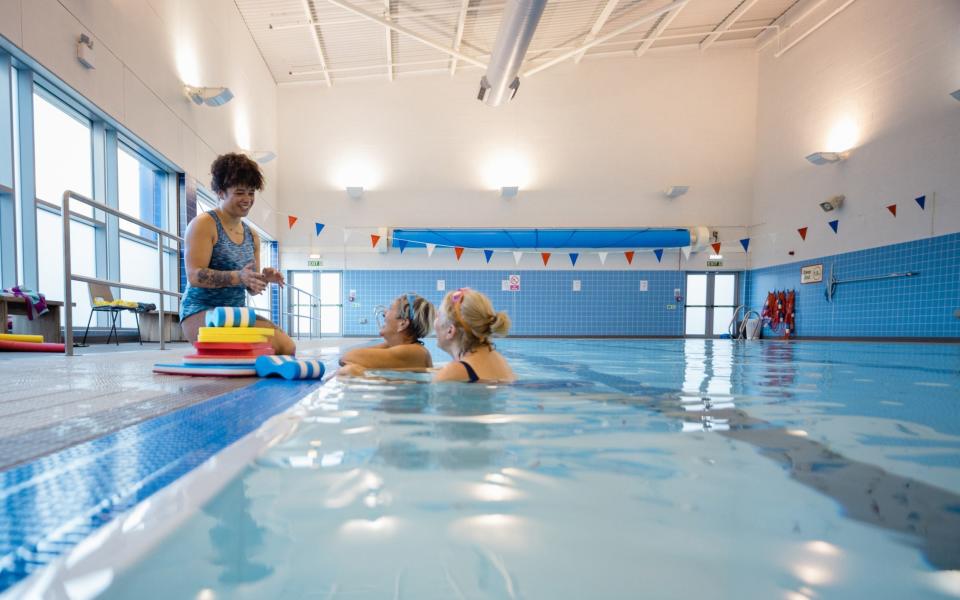Swimming pool heated by data centre to cut energy bills

A public swimming pool in Devon is being heated by the warmth generated from a data centre to help cut rising bills.
The computers at the centre are surrounded by oil, which captures heat produced by the machines, and are able to raise the temperature in the pool to around 30C, for 60 per cent of the time.
The hot oil is pumped into a heat exchanger in order to warm the water in the pool at Exmouth Leisure Centre.
The data centre’s energy is being given to the council-run pool free of charge. 65 leisure centres have closed in the UK since 2019, with more pools at risk because of rising energy costs.
Start-up Deep Green, which runs the data centre, was founded by Mark Bjornsgaard and uses the computers to power artificial intelligence and machine learning.
Mr Bjornsgaard said the company would also refund the leisure centre's electricity costs for running the "digital boiler" - and seven other England pools had signed up to the scheme.
Sean Day, who runs the leisure centre, said he had been expecting its energy bills to rise by £100,000 this year.
"The partnership has really helped us reduce the costs of what has been astronomical over the last 12 months - our energy prices and gas prices have gone through the roof," he said.
"Looking at different ways of how we can save money as an organisation has been awesome."
Speaking to the BBC, Cambridge University professor of engineering and the environment Dr Julian Allwood said: "If it's a sensible idea and it saves the leisure centre some money, then why not?"
Swim England chief executive Jane Nickerson said it was good to see pools "embracing innovative solutions".
In 2022, UK Active said that its members were facing bills up to 200 per cent higher compared to 2019, with costs expected to grow by up to 240 per cent in 2023.
A survey of swimmers, carried out by Savanta ComRes for UK Active, also found more than two-fifths (43 per cent) believed that the rising cost of living will have a negative impact on their ability to participate in sport.

 Yahoo Sports
Yahoo Sports 